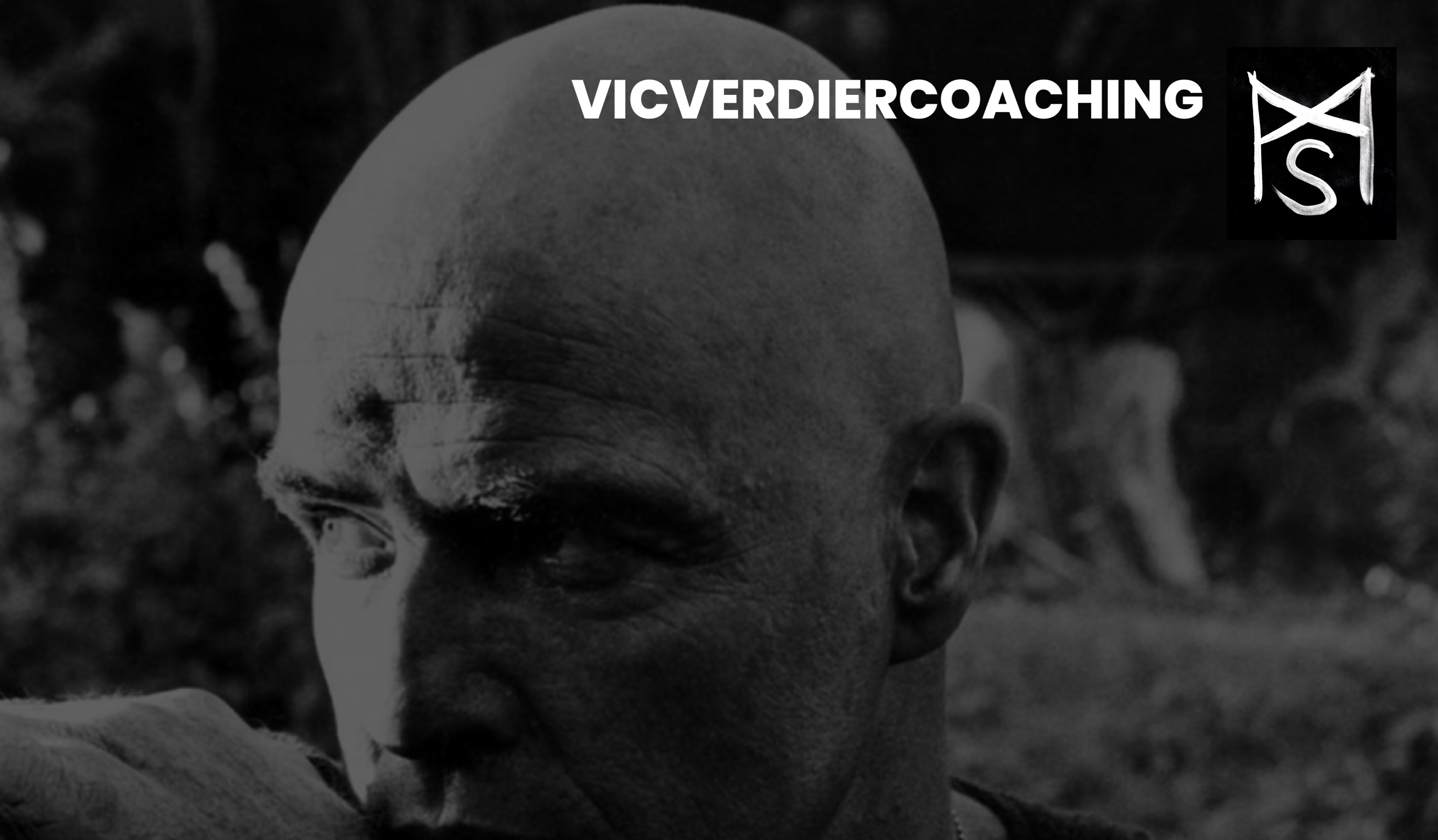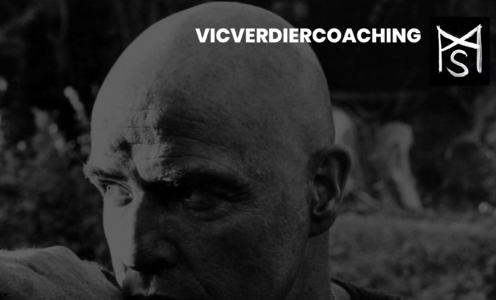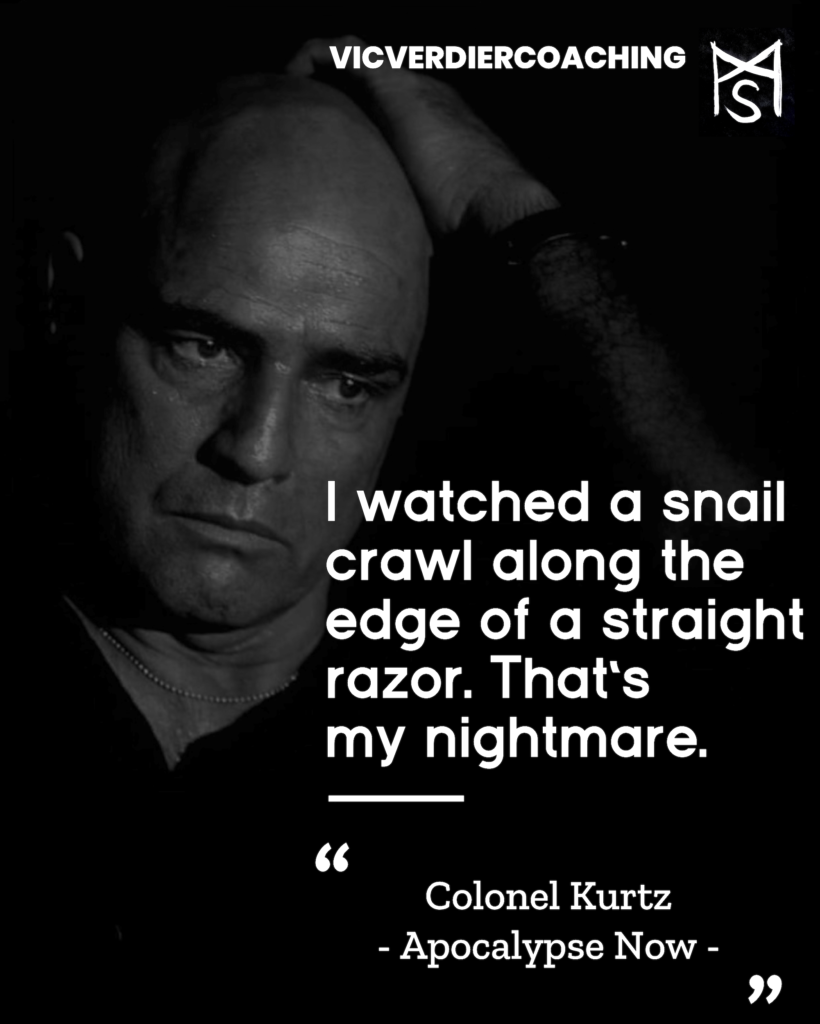
Very few movies have been more acclaimed and honored than the 1979 war movie directed by Francis Ford Coppola. Along with the two great characters played by Martin Sheen and Robert Duvall, is the always present but rarely seen Colonel Walter Kurtz, a renegade Special Operations officer played by Marlon Brandon. He is said to be insane and rogue and the orders are to eliminate him. The story follows Captain Willard, his assassin, on a patrol boat going up river to finally meet Kurtz. Willard soon discovers that Kurtz has been ordered to commit many atrocities by his superiors over the years, and as any man would, slowly became the perfect example of the old adage: “If you fight monsters for too long, you end up becoming a monster”. Where is the limit to the crimes you can commit for a juste cause before you start losing yourself?
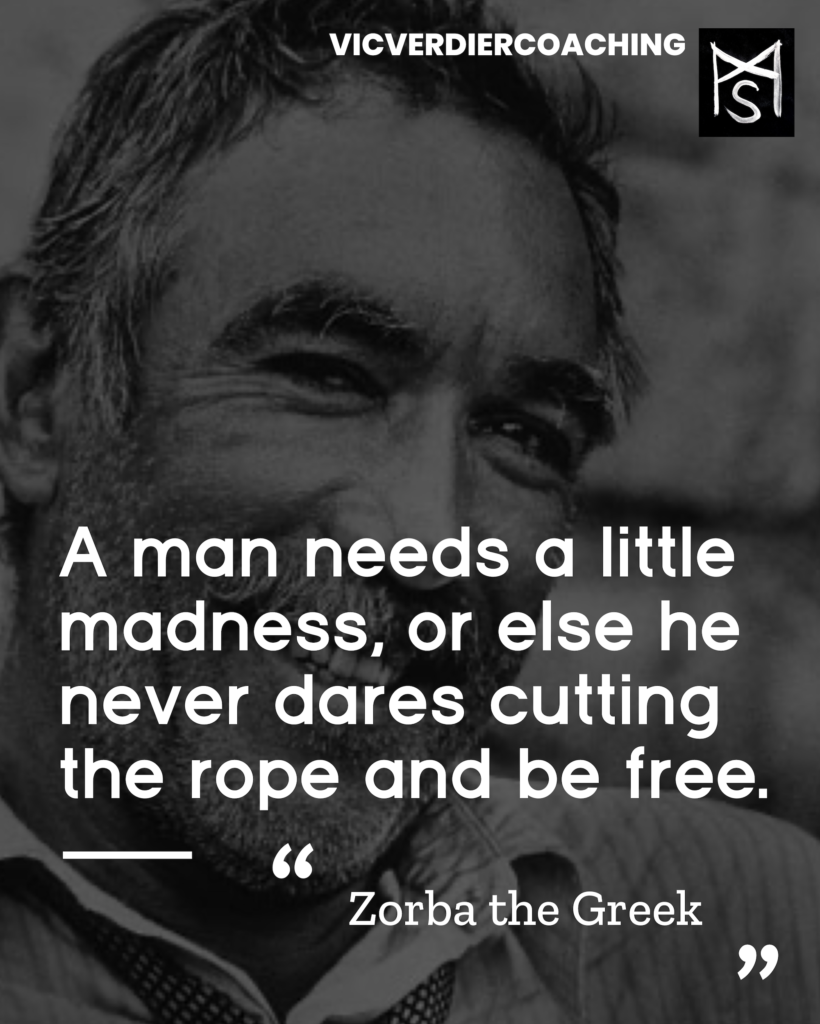
Zorba the Greek is a 1964 movie with Anthony Quinn and Alan Bates, based on a great story and a mesmerizing soundtrack. It’s not only a very entertaining black & white movie about the random encounter between two characters, it is by definition the comparison between two extremely different ways to envision manliness and life in general. Zorba lives life to its fullest, taking the day as it comes, enjoying music, dance, women, money and fun. His main aspiration is freedom, and his vision of the future is Epicurean and pragmatic, with a bit of Stoicism when it comes to dealing with adversity and fate in his projects. Nothing can really affect his optimistic vision of life and one of his main qualities is resilience, something we can all be inspired by.
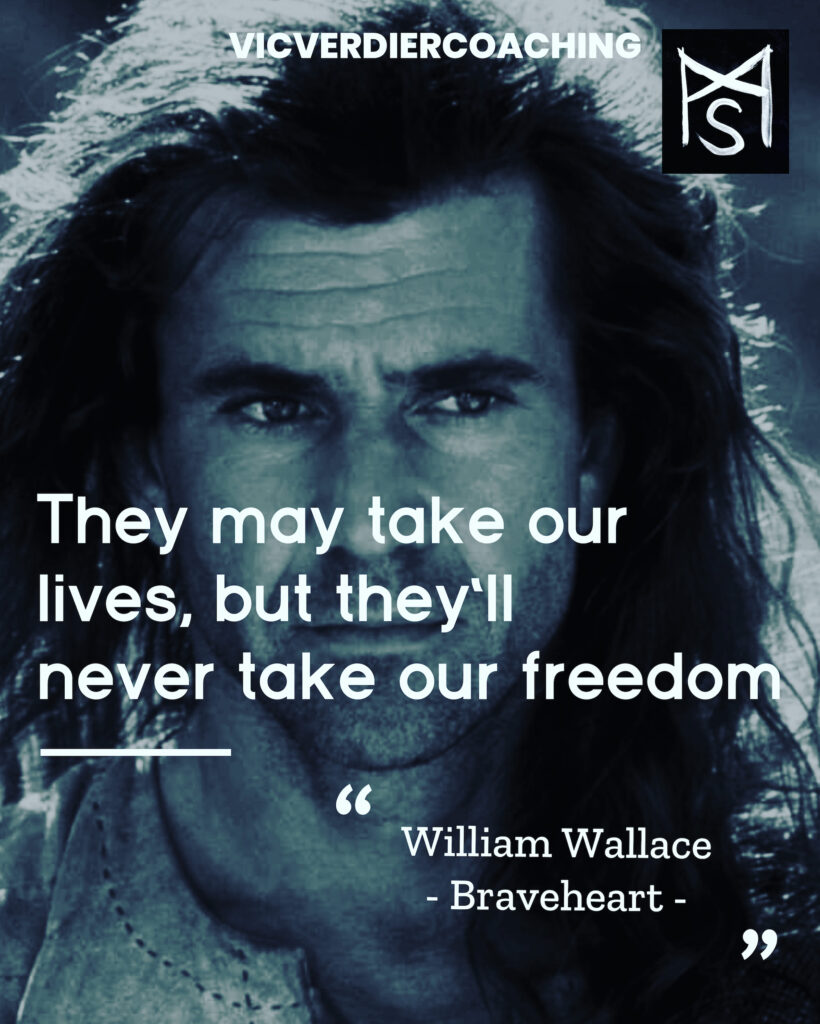
Braveheart is a 1995 movie directed and played by Mel Gibson, telling the story of Sir William Wallace, a thirteen-century knight who had a significant role in the 1st Scottish War of Independence. Wallace led his army against King Edward I of England and won several major battles against larger English troops, thanks to opportunistic tactics and use of the terrain, as opposed to the more traditional warfare of the time.What is even more remarkable about William Wallace, as depicted in the movie, is his complete commitment to his cause. He is a leader of men who actually leads from the front, in battles and in daily life. He knows how to motivate his troops because he is simply who he says he is. Even when captured or horribly tortured by the English King, he will never ask for mercy or even compromise his convictions and his fight for the freedom of his people and his country. On the site of his execution in London, one can read: “Freedom is what is best. Sons, never live life like slaves”.
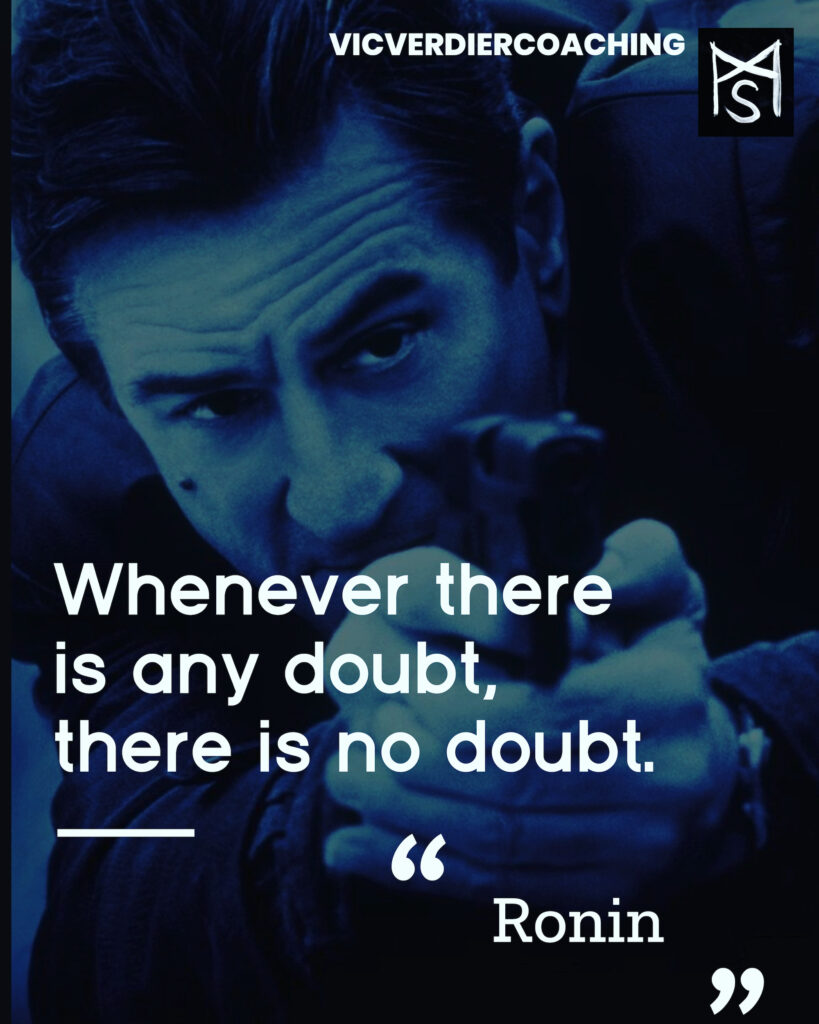
A man has to trust his instinct when his life depends on it. That’s the lesson Robert De Niro teaches to Jean Reno in this 1998 movie. Ronin is about a crew of specialists, mercenaries and former Intelligence agents, who sell their craft to well-paying masters and random causes. In this line of work, they can’t really trust anyone at face value. Their instinct is everything and they must develop it in order to quickly assess a situation or a person and decide what to do. In his book “The Gift of Fear”, Gavin de Becker talks about how modern culture tames us and suppresses our instinct in order to be a kind and polite person, regardless of the situation. But our brain is constantly processing a lot of information that will never reach our conscious mind, giving us the ability to see and feel way more than we think. If you “have the feeling” that something or someone is not right, don’t second guess your instinct. No time for reasoning. Act now!
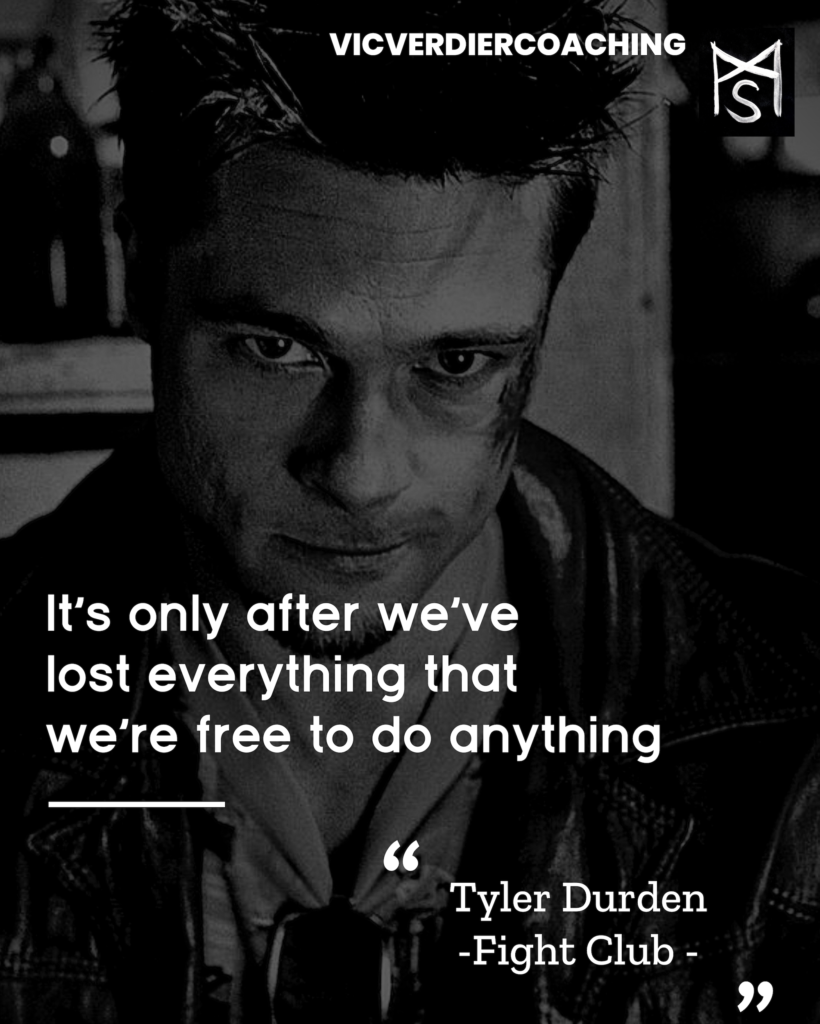
Since its release in 1999, Fight Club is considered a cult movie. Adapted from a novel by Chuck Palahniuk, it describes a social malaise that many young men feel. Tyler Durden, the main protagonist, played by Brad Pitt in one of his most famous movies, is a misfit, an outcast, whose only goal seems to be pushing his followers out of their comfort zone and out of the boundaries of conformity and norms, rejecting the consumer society they live in. It brings Tyler Durden and his alter ego, to create two underground societies: the Fight Club and Project Mayhem.What makes Tyler Durden such an iconic figure, and an inspiration for many, is his free spirit and his magnetism. He never steps away from pain or any new experience, demonstrating an exuberant sexual life, or becoming a bomb maker, a sabotage expert, and a leader of men.
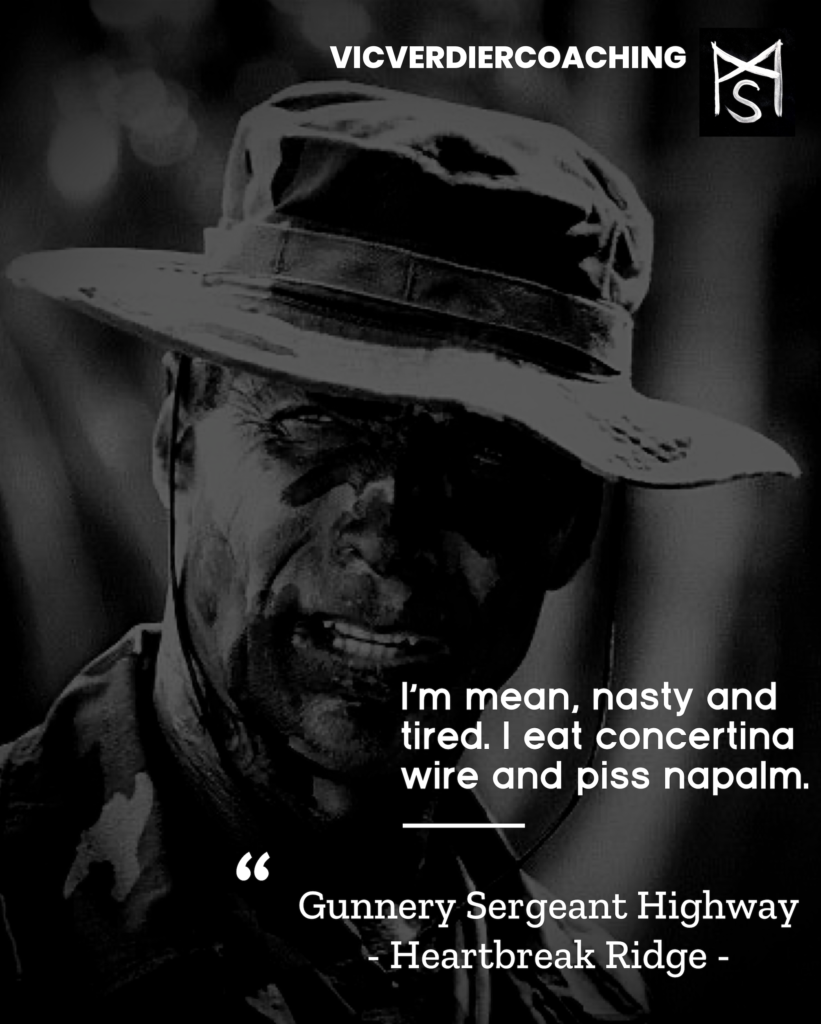
I’ve always been a big fan of Clint Eastwood as an actor and a director. From his performance as “the man with no name” in several spaghetti westerns, to his iconic Harry Callahan, Clint Eastwood has almost always played the same kind of characters, the highly masculine, reliable, strong and taciturn man who follows his own path without making compromise. In 1986, Heartbreak Ridge is a pivotal movie in Eastwood’s career, who was then 56 years old and started to play more mature men. In this movie about the invasion of Grenada, Gunnery Sergeant Highway outruns, outshoots, outdrinks and outpunches the younger recruits. Some of his lines are more memorable, full of wit, humor and colorful images, than most of his other movies.
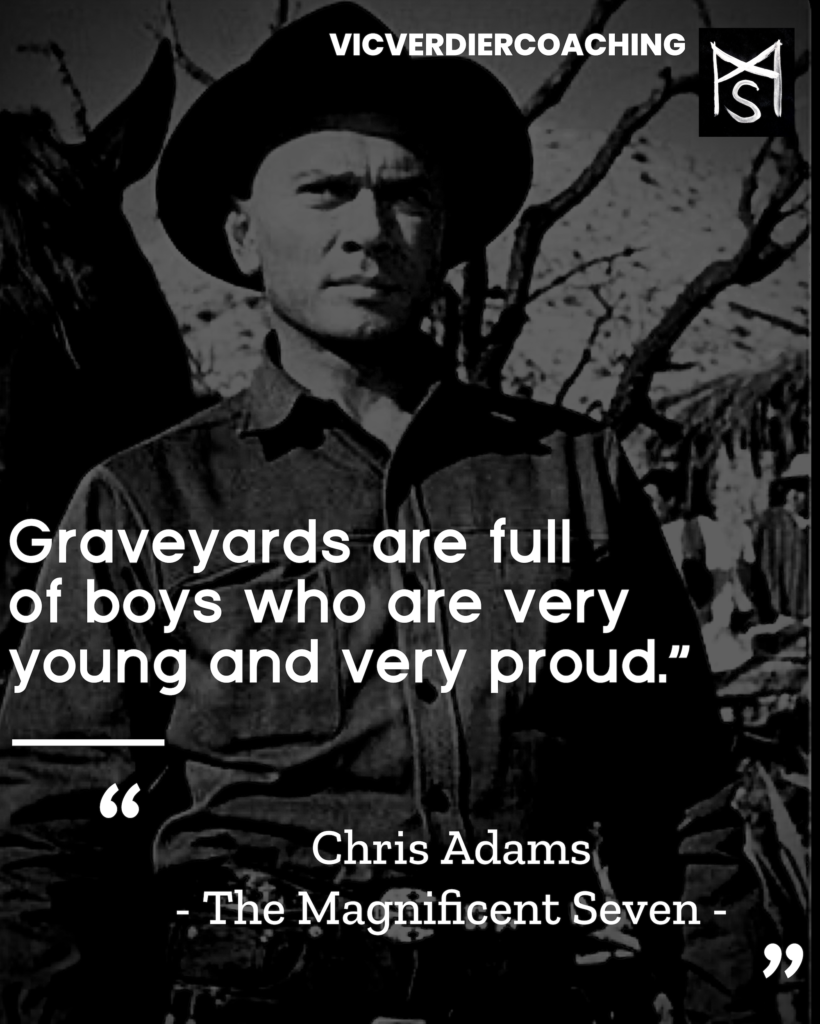
“The Magnificent Seven” is one of the most iconic western movies ever made. Directed by John Sturges in 1960 and based on the Japanese film Seven Samurai, it stars amongst others Steve McQueen, Charles Bronson, James Coburn and Robert Vaughn who play a group of gunslingers recruited by a charismatic leader named Chris Adams. In this role, Yul Brynner demonstrates the power of being laconic, calm under pressure and never prompt to react excessively. He is the wise and quiet leader, the opposite of the arrogant and violent Mexican gang leader Calvera, played by Eli Wallach. Adams is the archetype of the mature and experienced warrior who have seen too many arrogant men dying. He has a Stoic and realistic approach to his life, knowing that in his line of work “men are cheaper than guns”. He is not afraid of dying, just afraid of not living his life in his own terms.
